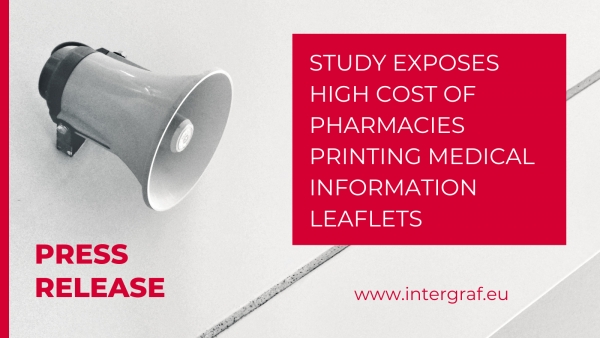17 January 2014

Energy brokers - who do they really work for?

The vast majority of energy broker services in the UK are conducted on a hidden commission basis. In these cases the broker receives hidden commission from the energy suppliers as opposed to being independent, impartial and acting in your best interests. Due to the nature and complexities of the markets, consumers need to call on energy experts to help them make better choices for their business. But consumers should insist upon full disclosure...
In August 2013, a survey was carried out on 504 businesses by market researchers Cornwall Energy which revealed 37% believed their broker was providing them with a free service, while a further 42% didn't know how much they were being charged.
So, less than a fifth of businesses understood that their broker wasn't free and knew how much the service cost.
According to one 'Big Six' energy supplier, while they make 5% profit on business energy bills, a further 7% is typically paid in hidden commission to brokers (click here for article).
According to Citizens Advice, 42% of mis-selling complaints from small businesses between November 2011 and October 2012 contained references to broker behaviour.
So, how can you be sure your existing broker is giving you the best deal?
You may have been with your broker for some time, and feel that they always get you a 'good deal' and quite often a 'free' service which always looks attractive. However, any provider that doesn't charge you a fee structure is almost certain to be taking commission from the supplier. That is fine, but it's not free.
Don't accept uncapped, hidden charges in your bills and insist that your broker discloses all charges for your current supply contracts - if the supplier resists, ask yourself why.
At Schneider Electric, we understand that for most companies Third Party Intermediaries (energy brokers and advisors) play a vital role in their energy procurement strategy.
We've put together a check list you should consider when speaking with any Third Party Intermediaries (TPIs). Do you:
1. Have a Service Level Agreement with your TPI - a list of services they provide you in exchange for your business?
2. Know if they charge a fee and whether they are also taking hidden commission from the supplier?
3. Know with certainty how much you pay them, directly and/or through your supplier?
4. Have a written guarantee that they don't take hidden payments from your supplier? If you ask them, will they confirm in writing?
If you answer no to any of the above, how can you be sure that the broker is acting in your best interests and getting you the best deal?
At Schneider Electric, we have campaigned for market transparency. We believe in transparency; transparent practices and transparent fee structures to ensure we offer the best and impartial service to our customers. Brokers should not take any hidden commissions for placing your energy supply contracts - any fees or charges should be disclosed and advice should be completely transparent and independent.
The reputation of the TPI market is damaged by sharp practice, mis-selling and stealth charges. Schneider Electric is leading the drive to outlaw these misleading practices and end hidden commission. We are also calling for the regulator OFGEM to regulate the industry.
The measures we have called for include:
- TPIs should be obliged to state openly on any service contract with a customer, all remuneration that they will receive from the customer and/or the supplier for any procurement and management services relating to energy supply contracts.
- TPIs should be obliged to disclose in full, upon request by the customer, all such remuneration on any existing or future supply contracts.
- Any supply contract documentation - and possibly every bill - should clearly itemise any TPI commission.
- Confidentiality agreements between TPIs and energy suppliers that prevent the disclosure of TPI commission should not be allowed.
- OFGEM should review whether exclusivity clauses in TPI service agreements are appropriate or necessary. Some agreements preclude not only other TPIs, but even the customer, from speaking to energy suppliers relating to supply contract pricing.
- OFGEM should consider whether TPIs should be permitted to sell services as 'free' or 'no cost', where they receive payment included in the supply contract price.
- Consideration should also be given to whether TPIs can describe themselves as independent where they evaluate and accept different rates of commission from different energy suppliers or the same customer's business.
Schneider Electric is leading the way for change. You can contact us now to find out how you can get the best deal for your energy supply contracts - with no hidden charges guaranteed.
Contact us at [email protected] or call 44 (0) 800 279 5500 or look at our website at www.schneider-electric.com.
 Intergraf Economic News (Paper Prices) - March 2024
Intergraf Economic News (Paper Prices) - March 2024
18 March 2024
Access the latest edition of the Economic Newsletter for the European Printing Industry for data on paper consumption, and pricing data for pulp, paper and recovered paper. Data for packaging papers and board is also available with this edition.
 STUDY EXPOSES HIGH COST OF PHARMACIES PRINTING MEDICAL INFORMATION LEAFLETS
STUDY EXPOSES HIGH COST OF PHARMACIES PRINTING MEDICAL INFORMATION LEAFLETS
7 March 2024
Intergraf welcomes the release of a study by our partner MLPS (Medical Leaflet = Patient Safety), a subgroup of the European Carton Manufacturers Association (ECMA) shedding light on the potential economic costs associated with the proposed use of Print on Demand (PoD) leaflets in the pharmaceutical legislation revision.
The BPIF is the printing industries champion. By becoming a member you join a diverse and influential community. We help you solve business problems, connect you to new customers and suppliers and make your voice heard in government.
Call 01676 526030









